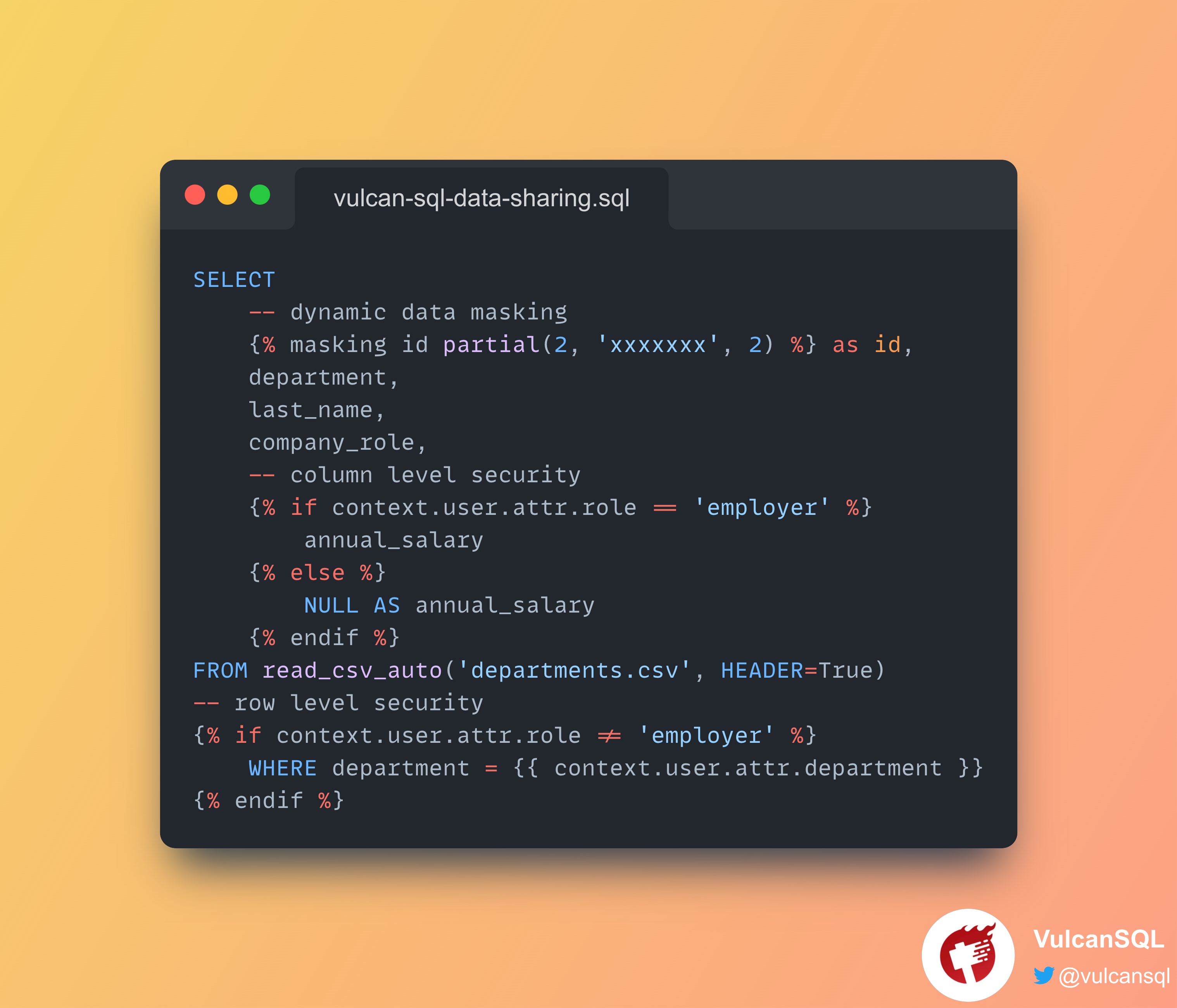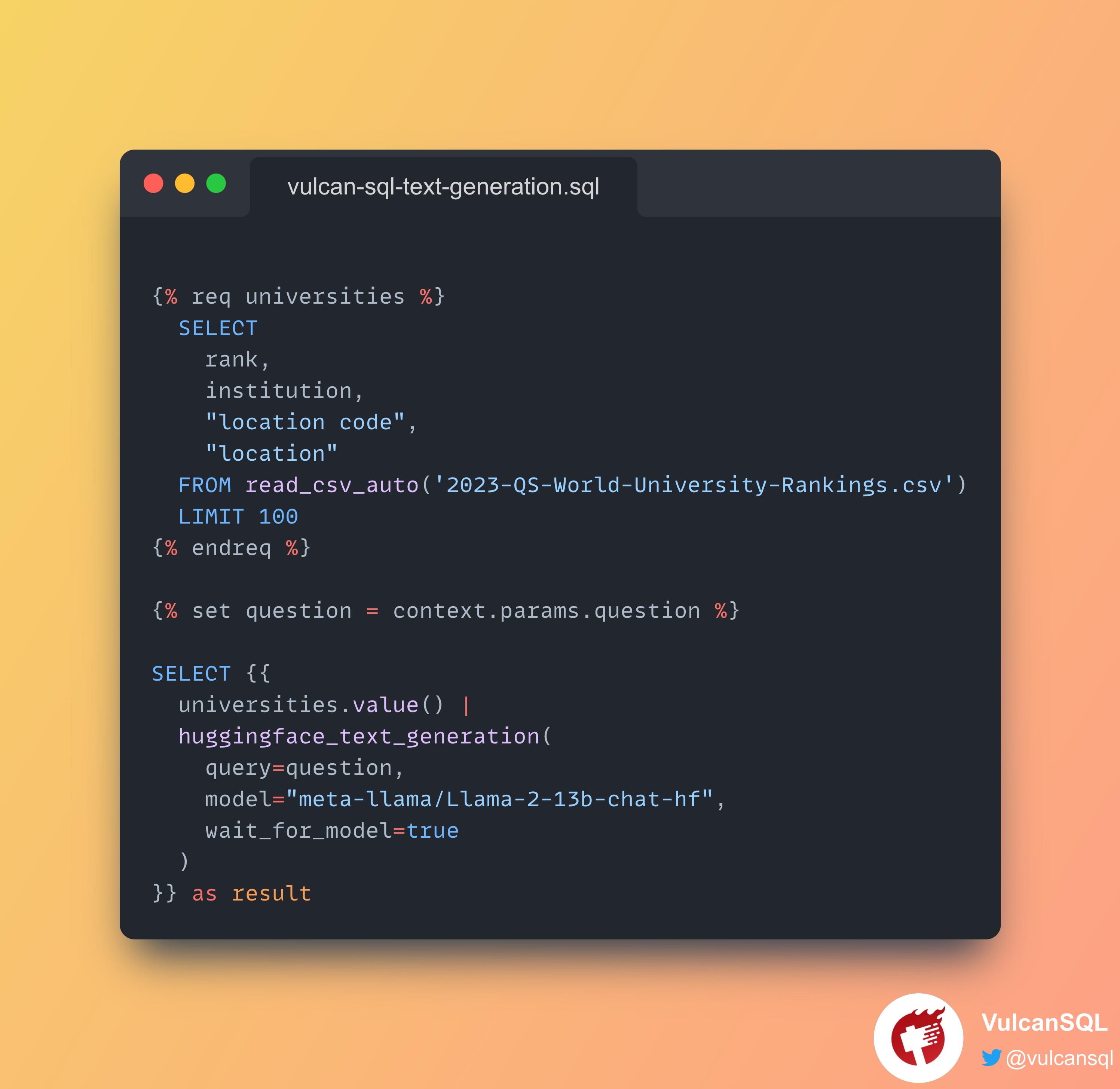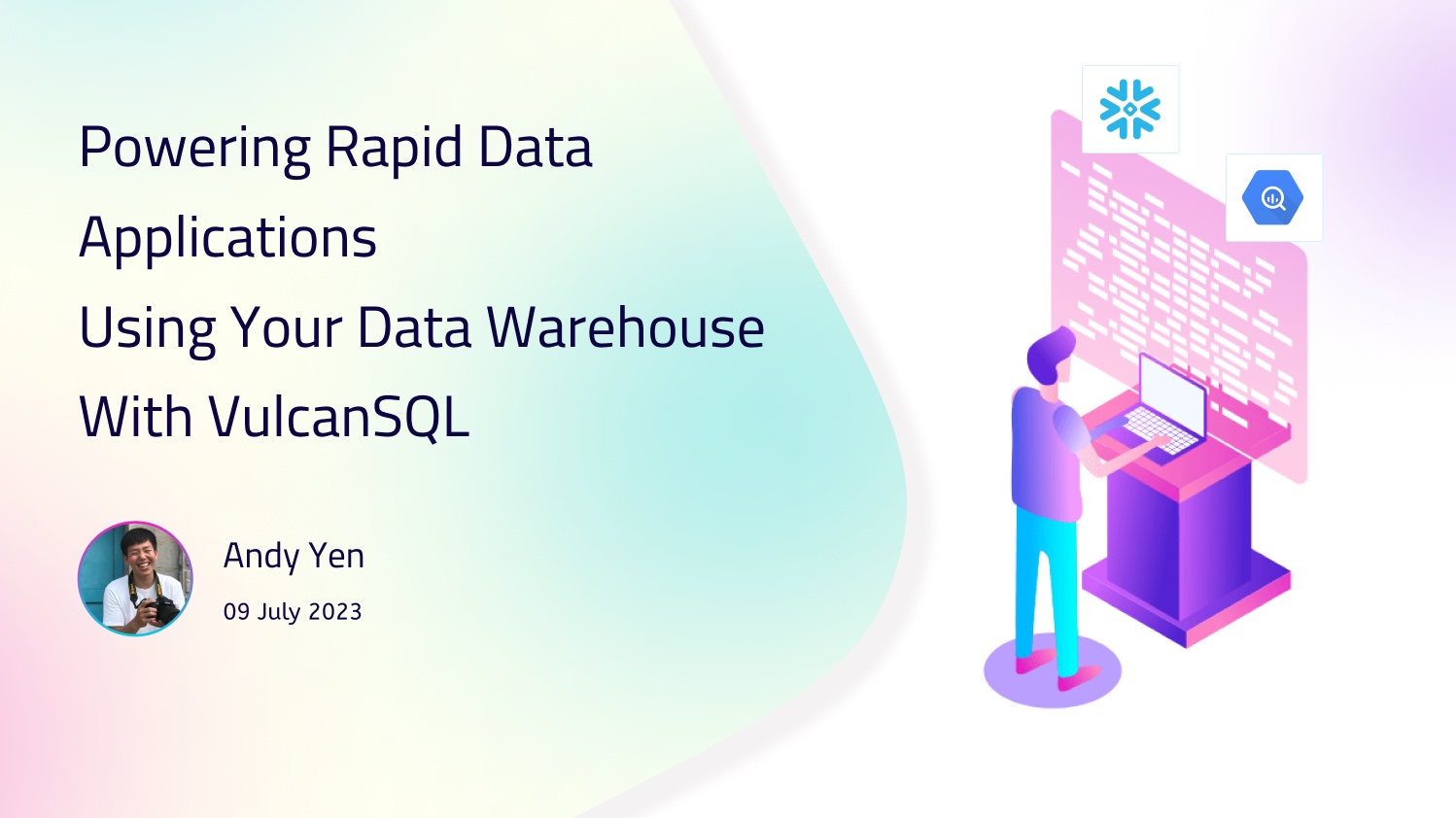TLDR: VulcanSQL, a free and open-source data API framework built specifically for data applications, empowers data professionals to generate and distribute data APIs quickly and effortlessly. It takes your SQL templates and transforms them into data APIs, with no backend expertise necessary.
One Way to Understand APIs
As an API designer, we can think of APIs composed of three components, namely input, transformation and output.
Let's start with the input component, we need to consider what are data sources of APIs. Generally, data sources can be databases, files on the FTP server, etc. After we decide what data sources our APIs support, we need to also support different mechanisms in order to get data from data sources.
Then, with the transformation part, it generally is where we handle business logic. Finally, the output part means the destination of the APIs and also the mechanisms we deliver the APIs, such as RESTful APIs, GraphQL, etc.
Now, let me take VulcanSQL as a quick example, it emphasizes you can write SQL templates in the transformation part, and it currently supports RESTful APIs for the output part. As of the input, please read the following content to grasp the full story!



